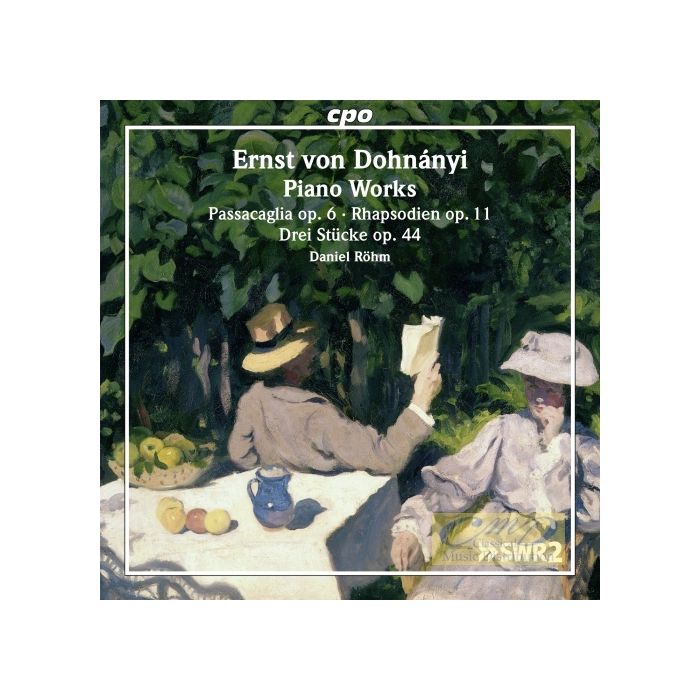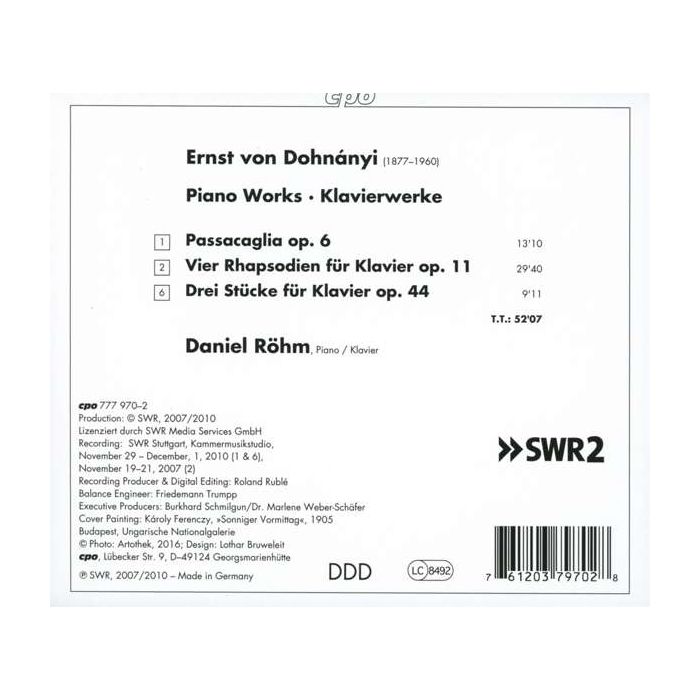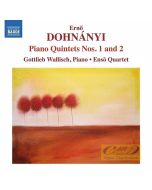
(Produkt nie został jeszcze oceniony)
kompozytor
Dohnanyi, Ernst von
tytuł
Dohnanyi: Piano Works
wykonawcy
Röhm, Daniel
nr katalogowy
CPO 777 970-2
opis
Music critics have always found it difficult to assign stylistic and qualitative labels to Ernst von Dohnányi (Hungarian: Ernő Dohnányi) – so it was in the past, and so it is today. Sometimes they have minimized his significance in the development of Hungarian music, and other times they have named him in the same breath with Bartók and Kodály. In any case, two things are certain: Dohnányi was not a revolutionary innovator, and a magnificent gift for melodic invention always distinguishes his music. After the release of his romantic Violin Concerto No. 1 with Ulf Wallin, we now are pleased to present some of his piano compositions, interpreted by Daniel Röhm, whose debut CD with Franz Schubert's late piano sonatas was awarded the Supersonic Award. And now Röhm sheds light on a little-known musical field represented by the sound world of this Hungarian composer whose works emerged from the tradition of Liszt and Brahms. Very early Dohnányi was regarded as one of the best pianists of his times, but he was also appreciated as a composer. On 16 February 1900 the Neues Wiener Tageblatt wrote, »His Passacaglia for Clavier is one of the most magnificent variation pieces that we know and, though strict in form, a very modern piece. The composer freely operates within the boundaries he has set for himself, so that not the slightest compulsion is to be observed in his work; he passes through all the schools of counterpoint, and all the while it is as if his imagination were pleasantly strolling along a delightful path.«
nośnik
CD x 1
wydawca
CPO
data wydania
5.05.2016
EAN / kod kreskowy
761203797028
42,00 zł
Produkt na zamówienie
Wysyłka ustalana indywidualnie.
Darmowa wysyłka dla zamówień powyżej 300 zł!
Darmowy kurier dla zamówień powyżej 500 zł!
sprawdź koszty wysyłki









